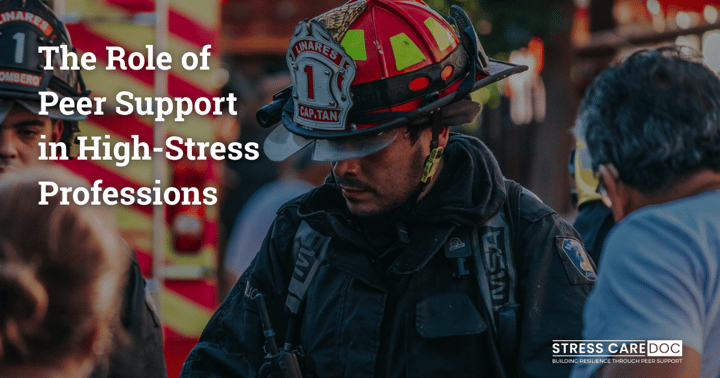Navigating Life After a Medical Retirement: A Coast Guard Veteran's Journey

For many, the idea of retirement is often seen as the golden years—a time to relax, pursue hobbies, and enjoy life. However, for some, retirement comes unexpectedly due to medical reasons, bringing about challenges that require immense resilience and adaptability. Kenneth Macgregor, a 21-year veteran of the United States Coast Guard, knows this all too well. His story is one of determination, faith, and finding new purpose in life after a diagnosis of multiple sclerosis (MS).
A Career Spanning the Seas
Ken's journey with the Coast Guard began when he was just eight years old. He saw a cutter ship while having dinner with his grandparents and became fascinated. This early curiosity set the stage for his long career. Ken started as a sonar technician and later transitioned to aviation electronics. His service took him from Florida to Alaska, with Alaska leaving such an impact that he stayed there for 17 years after retiring.
Alaska, with its stunning wildlife and environment, became a second home to Ken. He worked in Kodiak and Sitka, immersing himself in the beauty and community of the state. His time in the Coast Guard was filled with memorable moments, including a harrowing experience on New Year's Day 1984, when his ship, the icebreaker Westwind, suffered a 120-foot split in the hull while in Antarctica. Fortunately, the breach was above the waterline, preventing a catastrophe.
Facing a New Challenge
After his active service, Ken continued to work for the Coast Guard as a civilian employee and took on a part-time job as a security officer at a hospital in Kodiak. However, in 2018, his life took a dramatic turn when he was diagnosed with MS. By April 2019, the disease had progressed to the point where Ken could no longer work. For someone used to an active lifestyle, this was a significant blow.
MS affects everyone differently, but for Ken, it primarily impacted his gait and leg strength. The man who once walked 20,000 to 25,000 steps a day found himself limited to just a fraction of that. Accepting this new reality was tough, especially with the military mindset of pushing through adversity.
Adapting to a New Reality
Ken's training in peer support and crisis intervention played a crucial role in his adaptation process. His involvement with the Critical Incident Stress Management (CISM) team in Kodiak and his work with Warrior Family Ministries provided him with a strong support network. This support, combined with his faith in God, helped him navigate the emotional and physical challenges of MS.
One of the significant hurdles Ken faced was the typical "macho" mindset of not wanting to admit weakness. However, he realized that acknowledging his condition and seeking help was essential for his safety and well-being. This self-awareness and willingness to reach out to trusted peers and mental health professionals were vital steps in his journey.
Finding New Purpose
Moving to North Carolina to be closer to family, Ken focused on building new relationships and finding ways to stay connected to the community. He joined a church and became a Stephen Minister, walking alongside others through their challenges. This outward focus helped him find new purpose and fulfillment.
Ken's story is a powerful reminder that our identity is more than what we do—it's who we are. He emphasizes the importance of understanding that each chapter of life brings new opportunities and challenges. Whether he was a sonar technician, a flight mechanic, or now a retiree living with MS, each role is part of his broader identity.
Practical Advice for Others
For those facing similar challenges, Ken offers practical advice:
-
Educate Yourself: Learn about your condition and treatment options. Knowledge is empowering and can help you make informed decisions about your health.
-
Seek Support: Connect with peers, support groups, and mental health professionals. Sharing your experiences with those who understand can provide immense relief and encouragement.
-
Stay Active: Find ways to stay involved in your community and pursue activities that give you purpose. This can help prevent feelings of isolation and depression.
-
Focus on the Positive: Concentrate on what you can do rather than what you can't. Maintaining a positive outlook can significantly impact your overall well-being.
-
Faith and Spirituality: For Ken, his daily devotion and faith in God were cornerstones of his strength. Finding a spiritual practice that resonates with you can provide comfort and guidance.
Looking Ahead
Despite the challenges, Ken remains optimistic. He uses a rollator or wheelchair for mobility but continues to participate in community activities and online trainings. His message to others is clear: "Don't give up hope. Focus on the positive, not the negative. There are days when I can't do much, but I still try to stay connected with people and find ways to contribute."
Ken's journey is a testament to the power of resilience, faith, and community. His ability to adapt and find new purpose after a medical retirement serves as an inspiration to others facing similar challenges. By focusing on what truly matters and seeking support, anyone can navigate the difficult transitions in life and find new ways to thrive.
Listen to his interview here.





